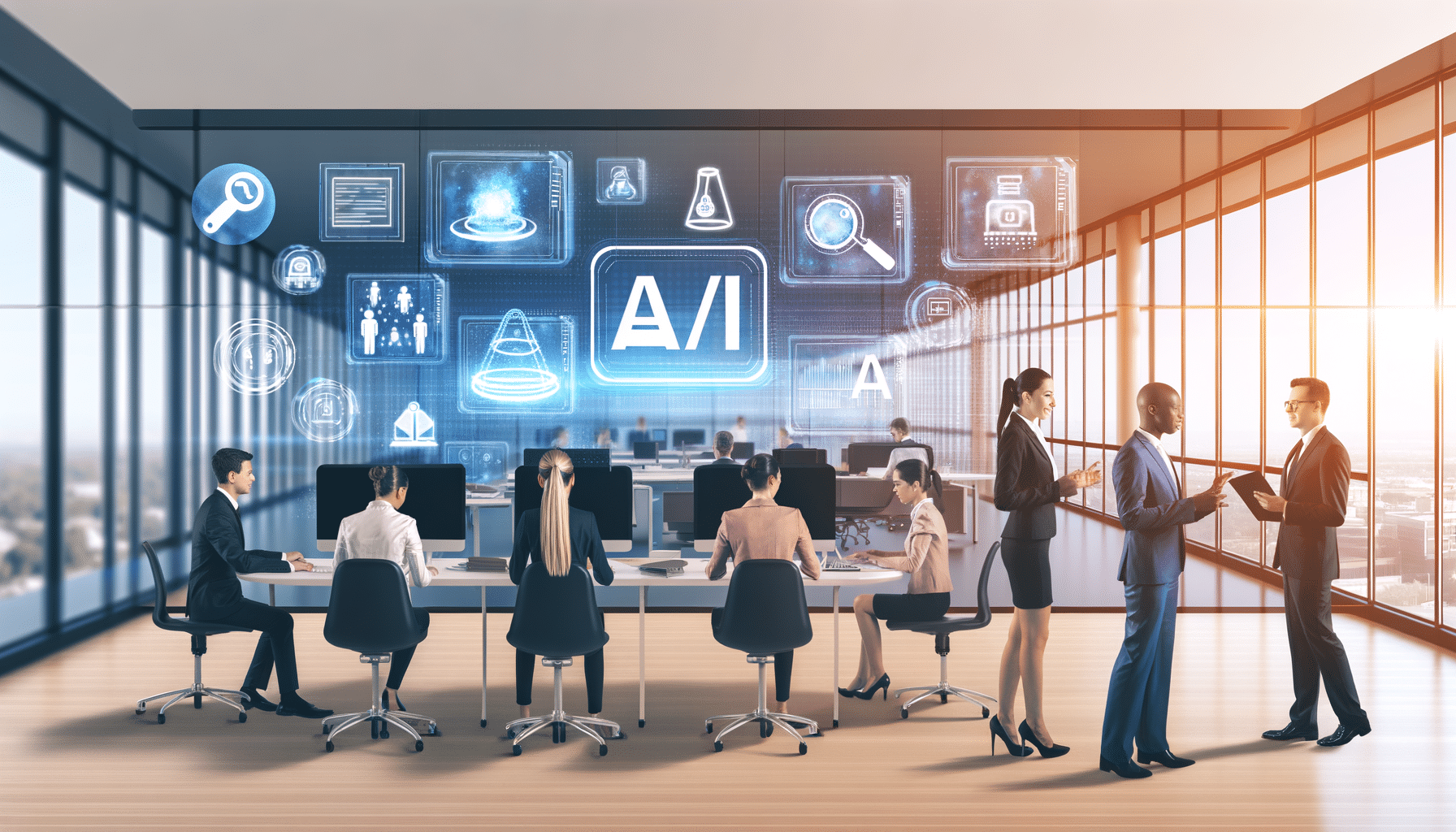- AI in Legal
- November 16, 2024
How AI Enhances E-Discovery in Legal Cases

Introduction
In today’s fast-paced digital age, the transformative power of Artificial Intelligence (AI) is seeping into every industry, reshaping how tasks are performed and, ultimately, how businesses operate. One area where AI is making an exceptionally significant impact is in the realm of legal e-discovery. As someone deeply invested in technological advancements, I’m thrilled to share how AI’s role is redefining e-discovery in legal cases.
The Complexity of E-Discovery
If you’re in the legal sector, I’m sure you’re familiar with the herculean challenge of e-discovery. Traditionally a tedious and time-consuming process, e-discovery involves sifting through an avalanche of electronic documents to find evidence pertinent to legal cases. With data now growing at an unprecedented rate, old-school methods of document review simply can’t keep up.
This is where AI steps in as a beacon of efficiency. By automating the document review process, AI not only accelerates the e-discovery phase but enhances the accuracy of identifying critical information.
AI’s Role in Enhancing E-Discovery
So, how does AI fit into the complicated jigsaw puzzle that is e-discovery? Let’s look at some of the monumental ways in which AI technologies are enhancing this crucial legal procedure:
- Automated Document Review: One of AI’s greatest strengths is its ability to sift through massive amounts of information. AI algorithms can quickly and efficiently tag documents based on relevancy, saving countless hours of manual review. This functionality allows legal professionals to focus their expertise on strategy rather than logistics.
- Predictive Coding: Far from being just a buzzword, predictive coding is revolutionizing e-discovery. By training AI models with sample data sets, these systems can predict the probability that a given document is relevant to a case. Predictive coding not only expedites the review process but also minimises human error.
- Improved Data Analysis: AI excels at identifying patterns across large data sets, offering insights that human reviewers might miss. The ability of AI to summarize vast amounts of data into actionable insights offers an unparalleled edge in the courtroom.
- Language Processing: Understanding natural language queries is another feather in AI’s cap. Advanced AI models can comprehend and interpret linguistic nuances, enabling more efficient keyword search and reducing the time spent on semantic ambiguities.
The Challenge of Integration
While the benefits of incorporating AI into e-discovery are manifold, it’s important to discuss potential challenges. Legal teams may grapple with adopting AI tools, with concerns ranging from cost to the learning curve associated with new technology. However, the long-term benefits far outweigh these initial hurdles, promising a more streamlined and effective discovery process.
The Compliance Angle
In my experience, no discussion about e-discovery would be complete without touching on compliance. Adhering to legal standards is non-negotiable, and that’s another area where AI’s impact is profound. Automated systems streamline compliance by ensuring data integrity and uniform application of regulatory procedures. Thanks to robust auditing capabilities, AI also simplifies adherence to various legal and regulatory frameworks, providing peace of mind where it did not exist before.
Embracing the Future
As the founder of a company that thrives on blending AI with functional real-world applications, I can confidently say the integration of AI in legal practices, particularly in e-discovery, is not a fleeting trend but the future. This transformation optimizes legal processes, thereby giving firms the competitive edge they need to succeed in their cases.
Conclusion
In essence, AI enriches the e-discovery process by automating labor-intensive tasks, improving accuracy, and ensuring compliance. As AI technologies grow more advanced, their applications in the legal field will only continue to expand, setting new standards for efficiency and accuracy. I encourage all legal professionals and decision-makers to explore AI-powered solutions and embrace the dawn of innovation that is AI in e-discovery. For more insights like these, or to better understand how to adapt these technologies into your practice, feel free to reach out to me or keep following my entrepreneurial journey.
Toshendra Sharma is the visionary founder and CEO of RecordsKeeper.AI, spearheading the fusion of AI and blockchain to redefine enterprise record management. With a groundbreaking approach to solving complex business challenges, Toshendra combines deep expertise in blockchain and artificial intelligence with an acute understanding of enterprise compliance and security needs.
Related Posts


Archives
- December 2024
- November 2024
- October 2024
- September 2024
- August 2024
- July 2024
- June 2024
- May 2024
- April 2024
- March 2024
- February 2024
- January 2024
- December 2023
- November 2023
- October 2023
- September 2023
- August 2023
- July 2023
- June 2023
- May 2023
- April 2023
- March 2023
- February 2023
- January 2023
- December 2022
- November 2022
- October 2022
- September 2022
- March 2019
Want to get more content like this?
Signup to directly get this type of content to your inbox!!
Latest Post
Organizing External Auditor Access
- December 22, 2024
Document Control in Manufacturing Plants
- December 21, 2024
Handling Rush Financial Report Requests
- December 20, 2024
Managing Record Access After Staff Changes
- December 19, 2024





